Internacionales
The indigenous people demand from Lula more speed for the demarcation of their lands
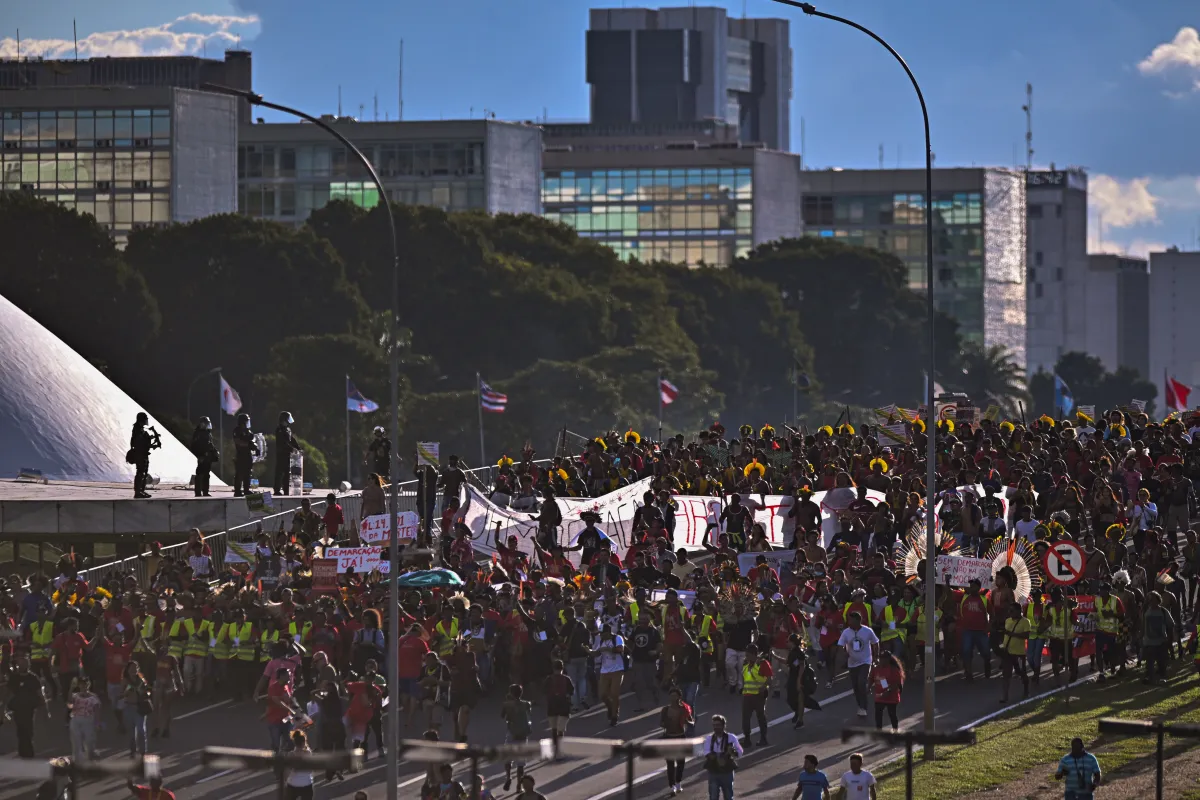
Thousands of indigenous people marched through Brasilia to the seat of the Government, where President Luiz Inácio Lula da Silva received a delegation that demanded greater speed in the regularization of the lands they have occupied for centuries.
Those and other demands were turned into a document delivered by about forty leaders of the indigenous peoples, who were received by Lula and the Minister of Indigenous Peoples, Sônia Guajajara, along with other members of the cabinet in the Presidential Palace of Planalto.
“I have a moral duty and a lifelong commitment to do everything possible, and even the impossible, to minimize the suffering of indigenous peoples and guarantee their rights,” Lula said on his social networks after the meeting.
The text also asks the Government for “greater political commitment” in the face of the conservative majority of Parliament. He accuses of promoting an “agenda” contrary to the indigenous people and the protection of the Amazon and other biomes inhabited by the indigenous peoples.
The Articulation of Indigenous Peoples (Apib) calculated that in the march, which took place peacefully, about 9,000 indigenous people who left the Free Land Camp participated. About two kilometers from the presidential palace and that brings together representatives of about two hundred ethnic groups this week.
While the meeting with Lula lasted, the demonstrators remained at the doors of the government headquarters in the midst of indigenous rituals. In a festive but also combative climate, in defense of their territories.
The main object of protests was a thesis known as a “time frame,” approved last year by the conservative majority of Parliament. It only recognizes as indigenous territories those that the original peoples effectively occupied on October 5, 1988, when the current Brazilian Constitution was promulgated.
The approval was after the Supreme Court had declared that thesis unconstitutional, which has generated a conflict, yet unresolved, in the face of which the court has urged a “conciliation”, to which the indigenous people oppose.
The camp, the largest annual event of the indigenous peoples, has been held since 2004 and this time has as its motto the phrase “Our framework is ancestral. We were always here,” alluding to the thesis defended by conservatism and the agricultural sector.
According to official data, indigenous people occupy about 14% of the national territory. It is represented by about 600 already delimited areas, to which can be added another 120 that are still being analyzed.
The demarcation of indigenous lands, an obligation of the State under the Constitution, was suspended between 2019 and 2022, during the administration of the then far-right president Jair Bolsonaro, and was resumed last year by Lula’s government.
However, of the fourteen territories ready for demarcation, the Government has so far regularized ten and the other four are pending negotiation. They are currently occupied by landowners who, in the past, expelled the indigenous people.
Lula pointed out in his message in X that it was not “easy to rebuild indigenous politics” after Bolsonaro’s mandate. He was “satisfied with what has been done so far” and guaranteed that his Government will work “even harder” for the indigenous peoples.
Internacionales
Major winter storm threatens “catastrophic” ice and snow across much of the U.S.
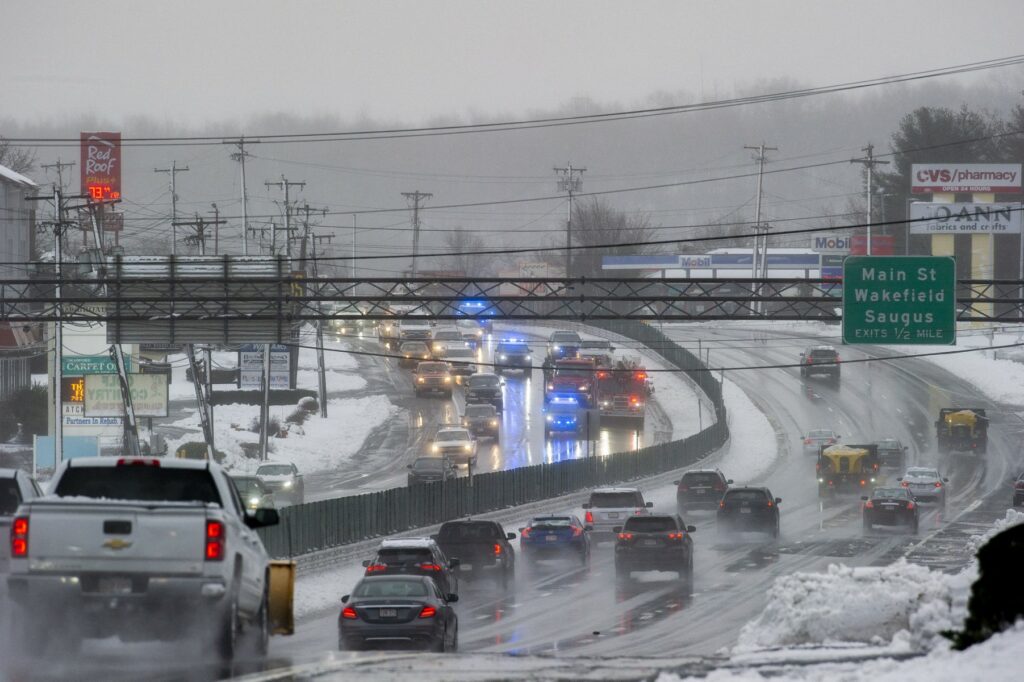
A major winter storm is threatening to blanket large portions of the United States with a dangerous mix of freezing rain and heavy snowfall, potentially creating “catastrophic” conditions across areas home to nearly 160 million people.
Several U.S. states have declared a state of emergency as the Arctic blast advances from the California coast across much of the continental United States, affecting central regions, including the Rocky Mountains and the Great Plains, according to forecasts.
The National Weather Service warned the storm could cause a “catastrophic accumulation of ice,” leading to prolonged power outages, widespread tree damage, and extremely dangerous or impassable travel conditions.
Meteorologist Ryan Maue cautioned that “the next 10 days of winter will be the worst in 40 years in the United States.”
“Think about where you can go, what you can do, and who may need even more help to survive the coming week. This is not an exaggeration or a joke,” Maue said.
He urged residents to prepare for temperatures dropping below -18°C (0°F).
More than 1,500 weekend flights had already been canceled, according to flight tracker FlightAware, including numerous flights in Texas.
In the southern state, many residents still recall the devastation caused by a similar storm in February 2021, which resulted in more than 200 deaths linked to hypothermia, carbon monoxide poisoning, and traffic accidents.
Texas authorities have assured the public that the power grid, which suffered widespread failures during that storm and left millions without electricity, is better prepared to withstand the extreme weather this time.
Internacionales
Juan Orlando Hernández’s family takes time to decide next steps after surprise U.S. release

Ana García, the wife of former Honduran president Juan Orlando Hernández, who was pardoned on Monday by U.S. President Donald Trump after being sentenced in 2024 to 45 years in prison on drug trafficking and firearms charges, told EFE on Wednesday that the family has not yet decided whether he will return to Honduras.
“We have not made any decision about that yet. Everything is still very recent, and as a family we are going to take the time to reflect carefully and make wise decisions thinking about the well-being of Juan Orlando, our children, and all our families,” García said at her residence in Tegucigalpa.
García wore around her neck her husband’s wedding ring, which she has kept since Hernández was held at a special police detention facility known as the ‘Cobras’ on the day of his arrest, February 15, 2022.
“We are still deciding many things. He has just been released, it has not even been 48 hours since he got out. So we are taking things calmly,” she reiterated.
She also explained that since she does not have a U.S. visa — revoked after her husband was requested for extradition following the end of his presidency in January 2022 — she has not been able to see him, but said she is “awaiting some form of communication from the United States” in order to do so.
García declined to reveal where in the United States her husband is currently located, although she stressed that she is confident she will have an opportunity to reunite with him.
Internacionales
One killed, 188 evacuated as wind-driven blaze rips through Kyushu neighborhood
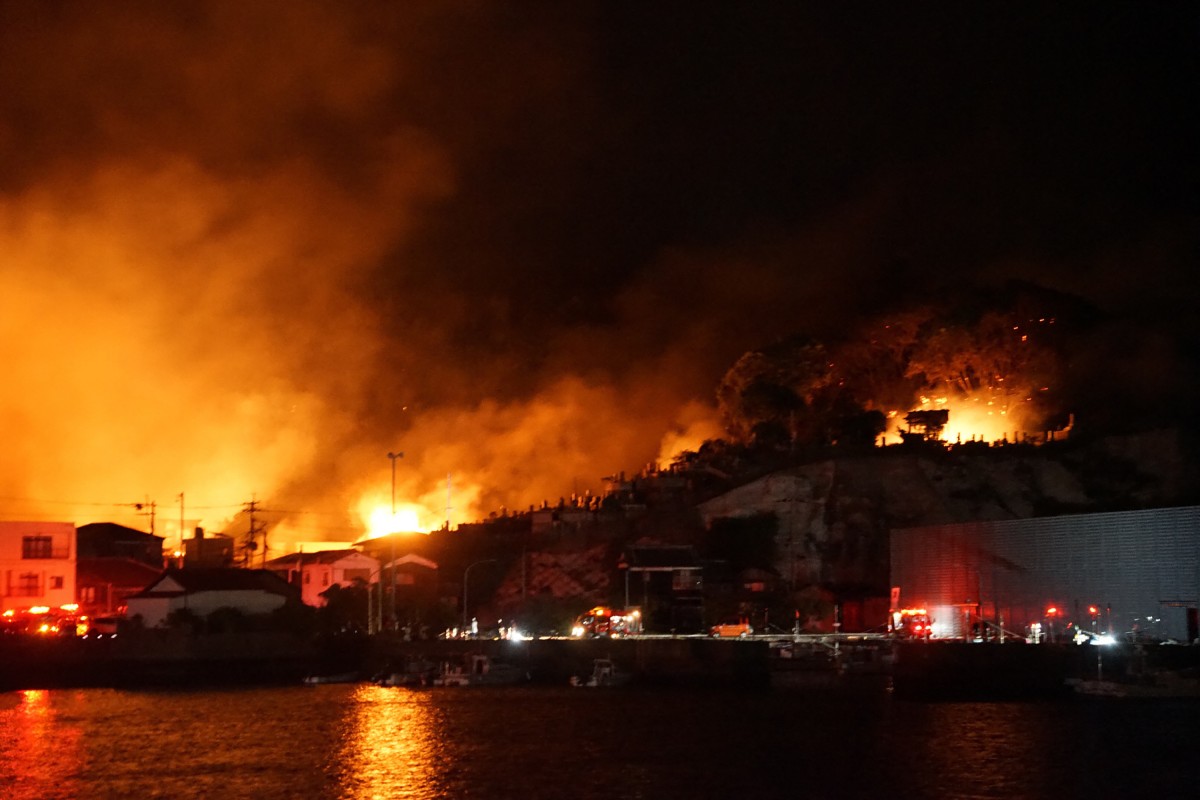
One person died and 188 residents were evacuated after a massive fire swept through at least 170 buildings in a residential area on the island of Kyushu, southern Japan, authorities reported on Wednesday.
The regional government confirmed one fatality. Public broadcaster NHK reported that police, who had been searching for a missing 76-year-old man, found a body inside his home.
Footage recorded on Tuesday night showed firefighters spraying water on towering flames engulfing homes, while residents were escorted to an improvised evacuation center.
“The flames rose so high they turned the sky red. The wind was strong. I never imagined it would spread so far,” a man told NHK.
“I was shaking with fear. I had never seen a column of fire like that,” another witness said.
The fire broke out late Tuesday, with at least 170 buildings affected. According to NHK, the blaze spread rapidly, likely fueled by a lack of rainfall, dry air, and the tightly packed wooden houses characteristic of the area.
-
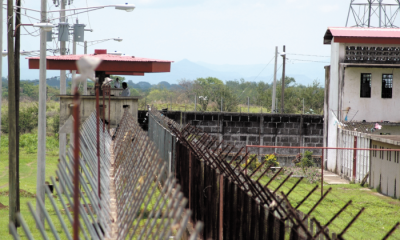
 Central America4 days ago
Central America4 days agoWashington Imposes Visa Ban on La Modelo Director Amid Crackdown in Nicaragua
-
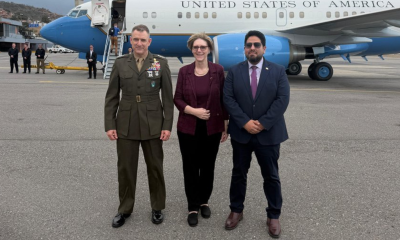
 International4 days ago
International4 days agoTop U.S. Military Commander Meets Interim Venezuelan Leaders After Maduro’s Capture
-
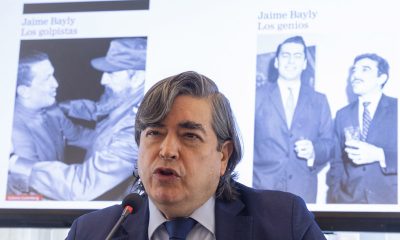
 International4 days ago
International4 days agoBayly Says Trump ‘Gets Along Better With Dictators’ and Criticizes U.S.–Venezuela Policy
-

 International4 days ago
International4 days agoRubio Engages in Quiet Discussions With Castro Family as U.S. Pressures Havana
-
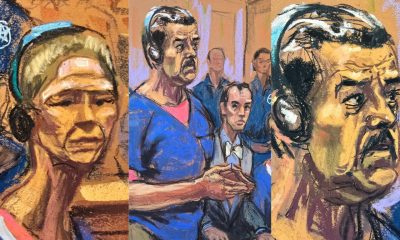
 International4 days ago
International4 days agoMaduro and Cilia Flores Receive Consular Visit in U.S. Jail Ahead of March 26 Hearing
-

 International2 days ago
International2 days agoThree Injured in Mail Package Explosion at Buenos Aires Gendarmerie Academy
-

 International2 days ago
International2 days agoTrump Defies Supreme Court With New 10% Global Tariff
-

 International2 days ago
International2 days agoU.S. Targets Members of Outgoing Boric Administration With Visa Revocations
-
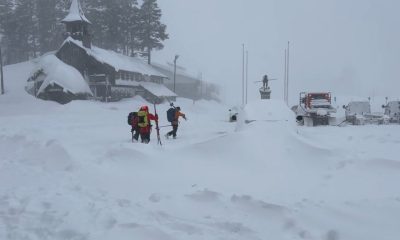
 International21 hours ago
International21 hours agoNinth Victim Recovered After Deadliest U.S. Avalanche in Decades
-
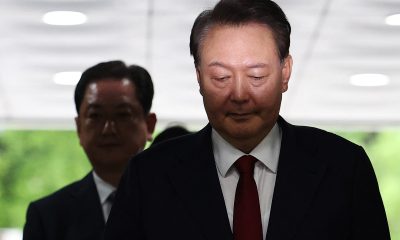
 Sin categoría4 days ago
Sin categoría4 days agoFormer South Korean President Yoon Suk-yeol Sentenced to Life for Insurrection


























